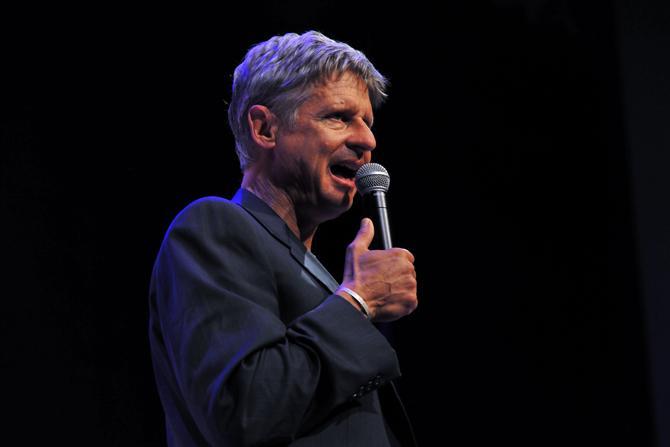It wasn’t pretty. It wasn’t polished. But the third party debate was a breath of fresh air.
Finally, issues largely absent from the mainstream candidates’ campaigns — issues critically important to our nation and the direction it is headed in — were openly discussed on the national stage, if only to a limited audience.
The debate, which was sponsored by the nonprofit Free and Equal Elections foundation and moderated by famous former talk show host Larry King, was streamed on various websites, including Ora.tv, and covered by CSPAN.
With such a limited audience and sponsorship, it should have been expected that Free and Equal’s debate wouldn’t match the professional quality of those put on by the Commission on Presidential Debates.
At one point, the debate’s introduction music began to play again during Free and Equal founder Christina Tobin’s opening remarks, and opening statements were done after the first question was already asked, either because they weren’t planned or no one reminded King.
Yet, despite being relegated to such a small stage, this debate offered a much broader range of opinions than what I’ve ever seen from the mainstream media.
Two left-leaning candidates, the Green Party’s Jill Stein and the Justice Party’s Rocky Anderson, stood side-by-side with two candidates from the right, the Constitution Party candidate Virgil Goode and Libertarian Party candidate Gary Johnson, in a display that could teach President Obama and Mitt Romney something about substance and civility.
And these were candidates with actual leftist or right-wing positions, not the faux-conservatism and faux-liberalism offered by Romney and Obama.
Stein and Anderson actually argued for free higher education during the debate and named climate change as the country’s main threat, while Johnson and Goode made frequent calls for states’ rights and their plans for a balanced federal budget.
Issues ranged from the drug war, America’s military role in the world and the cost of a college education to the influence of the two party system in electoral politics.
And that last issue hit close to home for these candidates, who have been marginalized by the political system.
Anderson consistently stated that the Republican and Democratic parties made up a “duopoly,” and Johnson referred to Obama and Romney as “tweedledee and tweedledum.” Goode even called for the elimination of Super PACs, political action committees that can raise an unlimited amount of money from corporations for candidates.
In fact, many of the issues these candidates agreed on are what set them apart from the Republicans and Democrats — and make their voices so important today.
It was refreshing to see a stage full of candidates who would all repeal the National Defense Authorization Act of 2012, a military spending bill that included provisions allowing the executive branch to potentially detain anyone, including American citizens, without due process.
Stein and Johnson also called for the repeal of the Patriot Act, although Stein went further, calling for the end of the FISA Amendments Act, which retroactively legalized the NSA’s wiretapping program, and the prosecution of whistleblowers.
Even the military budget wasn’t safe from a right-wing or leftist angle.
Goode and Johnson supported cuts to help reduce the deficit — a fiscally conservative policy starkly different from Romney’s plan to increase military spending by $2 trillion. Stein said she wanted to move away from a foreign policy “based on brute force and militarism,” and Anderson referred to it as the “military industrial complex.”
There wasn’t all agreement, however.
Goode and Johnson were opposed to the other candidates’ calls for free higher education, and both called for a constitutional amendment setting term limits for Congress. Goode also disagreed with all candidates in regards to legalizing drugs and his plan to put a moratorium on green card admissions until unemployment is below 5 percent — an plan that may appeal to the more xenophobic among us.
However, these candidates were willing to speak candidly about issues that are not being debated anywhere else in national politics.
And for that, they deserve your attention.






